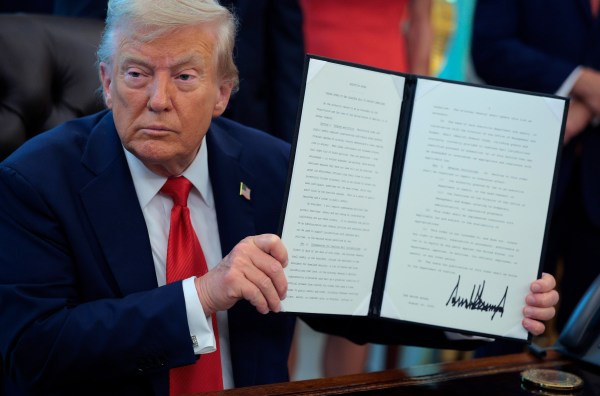It was always going to be difficult to pull off, no matter what Marvel did with the role of Black Panther after Chadwick Boseman’s death. Recasting à la Bruce Banner—you forgot Edward Norton originated the role in the MCU, didn’t you?—was a no go after Boseman became so closely associated with the role of T’Challa. Retiring the hero’s mantle proved a controversial idea also. Many asked why such an iconic black superhero shouldn’t be bigger than one actor. In the end, Marvel made the choice that would be the least offensive to the most people: Keep the title in the family and have T’Challa’s sister Shuri (Letitia Wright) become the new Black Panther. This decision sums up Black Panther: Wakanda Forever as a whole—unlikely to anger anyone, but equally unlikely to excite them.
The film is set in the aftermath of T’Challa’s death, following his struggle with an unnamed illness—one that Shuri believed could be cured by the mystical heart-shaped herb that gave the Black Panther his powers. All of the herbs were destroyed in the first Black Panther, and Shuri’s attempts to synthetically recreate it fail. Now, everyone in the world is trying to get ahold of vibranium, the powerful and magical metal found only in Wakanda, and searches for other sources of the metal lead to the accidental uncovering of an ancient underwater Mayan empire ruled by Namor (Tenoch Huerta). Namor proposes an alliance with Wakanda to take over the world, and Wakanda declines, sparking conflict between the two nations.
Director Ryan Coogler once more attempts to fill the movie with political overtones. While the first film worked reasonably well, with its examination about the lingering effects of colonialism and institutional racism, Black Panther: Wakanda Forever lacks its predecessor's thoughtfulness. What messages are present in the film are heavy-handed to the point of being disconnected from reality. Only white-led nations are after Wakanda’s vibranium, for example. That, say, China wouldn’t be interested in the most powerful substance in the world requires a greater suspension of disbelief than any of the film’s superhero antics. (It is, of course, likely that this omission has as much to do with Disney’s increasingly pathetic attempts to get its films released in the totalitarian state.) The European and American hunt for vibranium is meant to mirror colonial powers stripping colonies of their resources, but given the sheer power of Wakanda and Namor’s Talokan the storyline serves as a funhouse mirror at best, a not-fully-thought-out reason for the two vibranium world powers to end their squabble and have a common enemy.
Black Panther: Wakanda Forever isn’t bad, by any means. But Black Panther was a cultural moment, the rare occasion upon which a Marvel film transcends its MCU trappings. Its sequel is decidedly an MCU product, fully in line with the benign but boring movies the studio has been putting out lately. It is a film that seems largely to exist to set up future Black Panther movies, particularly in light of the mid-credit reveal at the end. Disney was in a tough position with Boseman’s passing, and sought to do something that wouldn’t rock the boat. But a little boat rocking might have been better, and certainly more interesting, than the paint-by-numbers product that emerged from their corporate planning.







Please note that we at The Dispatch hold ourselves, our work, and our commenters to a higher standard than other places on the internet. We welcome comments that foster genuine debate or discussion—including comments critical of us or our work—but responses that include ad hominem attacks on fellow Dispatch members or are intended to stoke fear and anger may be moderated.
With your membership, you only have the ability to comment on The Morning Dispatch articles. Consider upgrading to join the conversation everywhere.